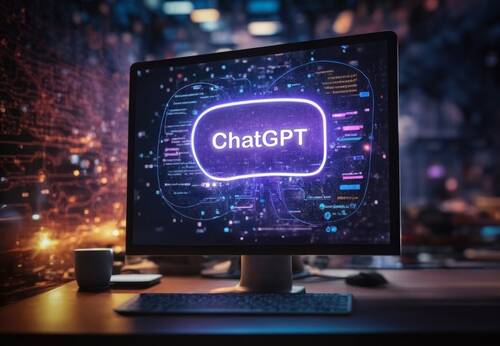
12 Sep Exploring the Opportunities: How ChatGPT Enhances the Capabilities of Modern Healthcare Workers
Integrating artificial intelligence (AI) into healthcare has opened numerous doors for improving efficiency and patient care. ChatGPT, an AI language model that can process and generate human-like text, is among the most promising advancements in AI-driven tools. Chat GPT for medical professionals is emerging as an innovative way to streamline workflows, assist with medical research, and enhance patient communication. This article delves into ChatGPT’s opportunities for healthcare, its current use cases, and how it can transform the medical field.

ChatGPT in Healthcare: A New Frontier
Chat GPT in healthcare is part of a growing trend where AI is becoming deeply embedded in clinical settings. Unlike previous AI tools focused on data analysis or image processing, ChatGPT provides natural language understanding and generation, making it highly versatile in patient interactions, documentation, and even decision support. The underlying technology can analyze complex queries, summarize medical information, and assist in generating accurate documentation, giving healthcare professionals more time to focus on direct patient care.
This adaptability allows ChatGPT to be implemented in various medical environments, from hospital administrative support to virtual health consultations. Below, we explore the specific opportunities and potential challenges of ChatGPT in modern healthcare.
Enhancing Documentation and Administrative Tasks
Healthcare workers spend a significant portion of their time on documentation, data entry, and administrative duties, which detract from their ability to provide direct patient care. One of the most promising ChatGPT use cases for healthcare is automating and streamlining these tasks. The AI system can assist with writing clinical notes, filling out forms, and summarizing patient data from lengthy documents.
In hospitals, ChatGPT in healthcare can be integrated into electronic health record (EHR) systems to facilitate faster note-taking during patient consultations. Physicians can dictate their observations, and ChatGPT can generate accurate clinical notes, reducing the time spent on manual documentation. This can also help minimize human error in record-keeping.
A significant benefit of this AI tool is its ability to generate highly detailed and organized documentation that aligns with medical terminologies. By reducing the administrative burden on healthcare professionals, ChatGPT allows them to dedicate more time to patient care, improving overall efficiency in clinical environments.
ChatGPT for Medical Professionals: Enhancing Communication
Effective communication is at the heart of quality healthcare delivery. ChatGPT can potentially improve communication between healthcare workers and patients and among medical professionals.
1. Patient Communication
Improving patient communication is one of the most impactful ChatGPT use cases for healthcare. Healthcare professionals can use ChatGPT to provide patients with easy-to-understand explanations of complex medical terms or conditions, reducing confusion and anxiety. This AI tool can generate plain-language summaries of diagnoses, treatment plans, and medication instructions accessible to patients, regardless of their medical literacy levels.
ChatGPT can be a virtual assistant in telemedicine settings, answering common patient questions, scheduling appointments, and providing general information about medical conditions. With the integration of healthcare scheduling software systems, ChatGPT can assist in managing appointments, enabling patients to easily schedule or reschedule their visits and access relevant information. By using AI for these routine tasks, healthcare workers can ensure patients receive accurate information while managing more urgent or complex clinical duties.
2. Professional Collaboration
ChatGPT also enhances collaboration among healthcare professionals by facilitating clear and concise communication. When sharing patient information between departments, ChatGPT can generate summaries of medical cases, treatment histories, and current health statuses. This makes it easier for different teams to collaborate on patient care and reduces the risk of miscommunication or incomplete data sharing.
ChatGPT can assist in summarizing literature, drafting research papers, and generating reports based on clinical findings in medical research. Its ability to process vast amounts of medical data and provide relevant insights can aid healthcare professionals in staying updated with the latest research and developments in their field.
Improving Decision Support Systems
AI-driven decision support systems have been increasingly used in healthcare for diagnostic and treatment recommendations. While many systems focus on data analysis, ChatGPT for healthcare adds another layer by interpreting complex medical language and providing context-sensitive advice.
1. Clinical Decision Support
One of the exciting healthcare ChatGPT use cases is its potential in clinical decision support. Physicians can input patient symptoms or test results, and ChatGPT can generate possible diagnoses, suggest treatment options, or recommend additional tests. While not intended to replace human judgment, ChatGPT can act as a supplementary tool that provides a second opinion or verifies the information.
By integrating with EHR systems, ChatGPT in healthcare can cross-reference patient data, prior medical history, and relevant clinical guidelines to offer tailored treatment recommendations. This use case can help healthcare workers stay informed about the latest treatment protocols and reduce the likelihood of errors in patient care.
2. Drug Information and Interactions
Another essential use case is assisting healthcare workers in managing drug prescriptions and potential drug interactions. ChatGPT can analyze a patient’s medication list, flag possible interactions, or suggest alternative medications that may reduce side effects. This capability is especially valuable in polypharmacy cases, where patients are prescribed multiple drugs, and the risk of adverse drug interactions increases.
By leveraging ChatGPT’s natural language processing abilities, medical professionals can quickly access relevant information on drug safety, dosages, and potential side effects, making clinical decision-making more efficient and safer.
ChatGPT Use Cases for Healthcare: Potential Applications
The versatility of ChatGPT opens up numerous potential applications across healthcare settings. Below is a list of possible healthcare ChatGPT use cases that can benefit healthcare professionals and patients alike:
Patient Triage: ChatGPT can be used in virtual care settings to assist with patient triage, helping healthcare providers assess symptoms and prioritize treatment based on the severity of the condition.
Medical Training: Medical students and trainees can use ChatGPT as a study tool to generate quizzes, simulate patient interactions, and test their knowledge on various medical topics.
Remote Monitoring Support: For remote patient monitoring, ChatGPT can analyze data from wearable devices, provide summaries to healthcare professionals, and send alerts when a patient’s condition requires attention.
Appointment Scheduling: ChatGPT can be integrated into hospital systems to assist with patient scheduling, reduce the administrative load on staff, and improve patient satisfaction by minimizing wait times.
Mental Health Support: Mental health professionals can use ChatGPT to provide immediate support to patients through chatbots, offering advice, coping strategies, and resources for those experiencing stress or anxiety.
Challenges and Things to Consider
While ChatGPT’s potential benefits for healthcare are substantial, several challenges must be addressed. One primary concern is ensuring the accuracy and reliability of AI-generated content. Since healthcare decisions impact patient well-being, it is critical that medical professionals thoroughly validate the information provided by ChatGPT before use in clinical settings.
Ethical considerations around patient privacy and data security are paramount. As ChatGPT interacts with sensitive patient information, healthcare providers must ensure that AI tools comply with regulations such as HIPAA to safeguard patient data from unauthorized access or misuse.
Another challenge is the potential over-reliance on AI systems. While ChatGPT can assist healthcare professionals, clinicians must maintain their expertise and use AI as a supplemental tool rather than a replacement for human judgment.

Conclusion
The integration of ChatGPT in healthcare offers exciting opportunities for enhancing the capabilities of modern healthcare workers. From improving patient communication to streamlining administrative tasks and supporting clinical decision-making, the potential applications of ChatGPT are vast. By exploring innovative ChatGPT use cases for healthcare, the medical community can harness the power of AI to improve patient care, reduce administrative burdens, and enhance collaboration among healthcare professionals.
However, adopting AI-driven tools like ChatGPT must be approached carefully, considering their accuracy, ethical use, and integration into existing healthcare systems. As technology continues to evolve, ChatGPT will likely play an increasingly vital part in shaping the future of healthcare delivery.
—
The information on MedicalResearch.com is provided for educational purposes only, and is in no way intended to diagnose, cure, or treat any medical or other condition.
Some links may be sponsored. Products, included compounded prescriptions above are not warranted or endorsed.
Always seek the advice of your physician or other qualified health and ask your doctor any questions you may have regarding a medical condition. In addition to all other limitations and disclaimers in this agreement, service provider and its third party providers disclaim any liability or loss in connection with the content provided on this website
Last Updated on November 27, 2024 by Marie Benz MD FAAD
